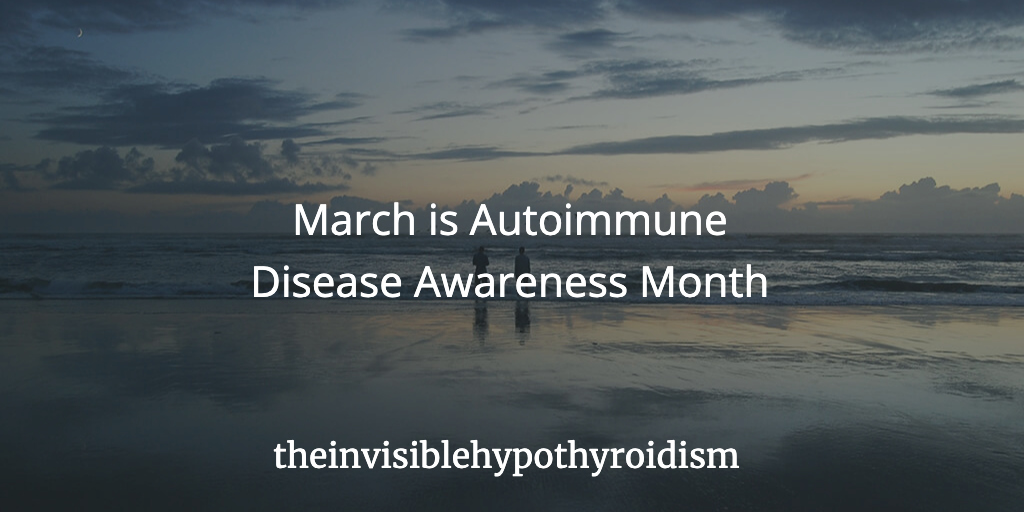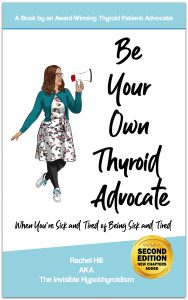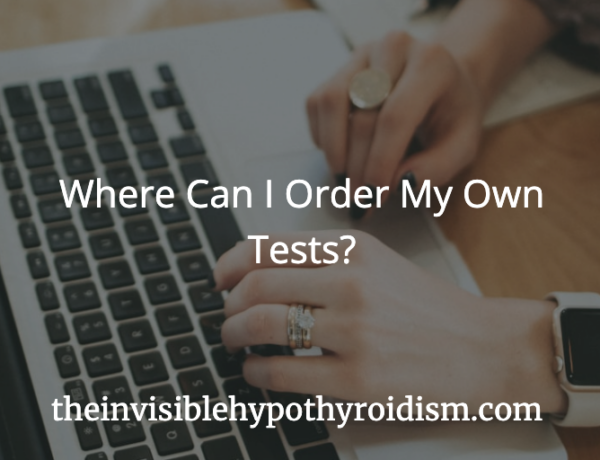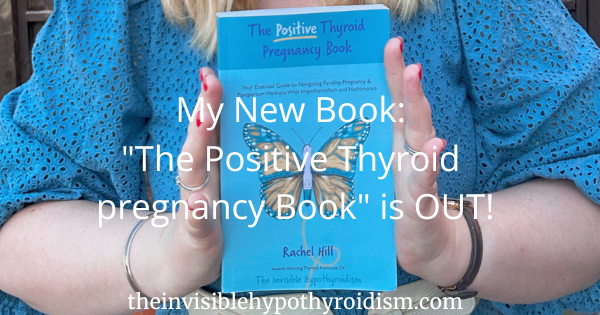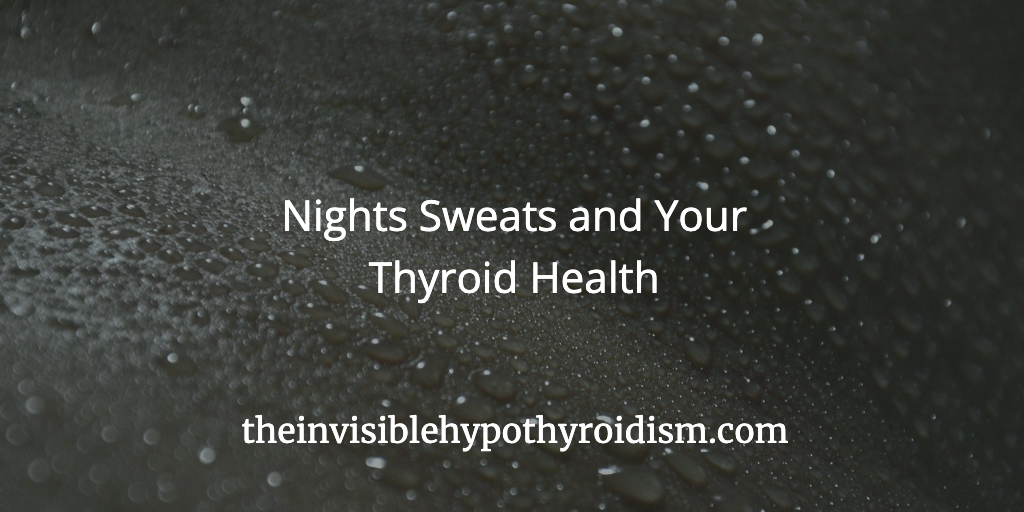Originally published on 1st March 2016 Last updated on 28th February 2025
March is Autoimmune Disease Awareness Month, which is important and relevant to many of us with hypothyroidism.
This is because 90% of us with hypothyroidism also have the autoimmune disease Hashimoto’s Thyroiditis. [1]
However, a lot of thyroid patients still do not know if their hypothyroidism is autoimmune, even though this can play a part in the managing of their thyroid condition.
What is Hashimoto’s Thyroiditis?
Hashimoto’s is an autoimmune disease which causes the body to attack and destroy its own thyroid gland (a butterfly shaped organ located in the neck), causing hypothyroidism as the thyroid begins to dysfunction from the damage caused.
As time goes by, if this autoimmune disease is not well controlled, your own body continues to attack the thyroid gland which can cause your levels to become gradually worse, meaning further increases in thyroid medication dosage and worsening symptoms. It can also feel tricky to get on top of your thyroid condition for good.
You may also swing between hypothyroid and hyperthyroid symptoms as this damage in ongoing.
How Do I Know if I Have Hashimoto’s?
To know if you have Hashimoto’s, you need two thyroid antibody tests ran: TPOAB (thyroid peroxidase antibodies) and TGAB (thyroglobulin antibodies).
Having Hashimoto’s will usually show as one or both of these test results being above range, although it is thought that as many as 10% of those with Hashimoto’s don’t show up on tests.
It is also worth knowing that you could see variations in your thyroid antibody and hormone results each time you test, with them being high one time, low the next, high the next time and so on. This is due to the ongoing destruction of your thyroid gland causing surges of thyroid hormone to be released into the blood.
Signs of Hashimoto’s Can Include:
- Symptoms that don’t go away with optimal Free T3 and T4 levels
- Brain fog
- Mood swings
- Swings in feeling hypothyroidism and hyperthyroidism
- Ongoing fatigue
- Acid reflux and gut/digestive issues
- Aches and pains
- Skin complaints
and more.
The Importance of Testing Your Thyroid Antibodies
As demonstrated through my own thyroid health journey, many thyroid patients benefit from being more involved in their thyroid care and treatment, which is where self-testing and the ability to order your own tests can be critical tools for getting your health back on track. Confirming that my hypothyroidism was caused by Hashimoto’s, and getting my Hashimoto’s controlled (and in remission) formed a big part of my recovery from thyroid disease.
Many doctors will not test or retest thyroid antibody levels, but it is worth knowing that you can order them yourself, just as I did, if they will not. It is worth asking your doctor though.
Where Can I Order Thyroid Antibody Testing From?
A popular place you can order some more in-depth thyroid testing is Medichecks, who offer countless tests. You can easily order complete Hashimoto’s testing from them in the comfort of your own home.
With it being Autoimmune Disease Awareness Month, it is crucial that we raise awareness about how important testing these antibodies and knowing if you have Hashimoto’s, is.
What Difference Does It Make If You Do Have Hashimoto’s?
Having Hashimoto’s means that you we should ideally be looking at calming down the disease and lowering those high thyroid antibody levels. By doing so, the attack against your thyroid is slowed down or even halted, meaning that symptoms disappear and recovery can begin.
Read about how I got my Hashimoto’s in to remission here.
Finding out if I had Hashimoto’s has been a huge part of treating and managing my thyroid condition and thyroid health, as certain things that have helped get the Hashimoto’s under control and in remission, have made the biggest overall improvements in my health that let me lead me back to a very good quality of life.
The Big Thyroid Jigsaw Puzzle
I always describe treating and managing thyroid disease as being like a giant jigsaw puzzle. Each person will have different pieces to slot in to place before they can obtain good or even great health again, but we have to work to find out what these are for each of us. Learning if we have Hashimoto’s can really affect this.
We all need to embrace being our own thyroid health advocate. You can find my book on how I did this too, here.
It is essential reading if you need some clear, simple guidance on your Hashimoto’s and hypothyroidism.
Another important part of this awareness month is using it to raise awareness of the health condition to those who do not have it. Please see a list of articles you may wish to share with those around you, below.
- What is hypothyroidism?
- What’s Hashimoto’s?
- How do you treat Hashimoto’s?
- Can you cure Hashimoto’s?
- What supplements should I consider taking?
- Any support groups I can join?
- Should I avoid any foods?
- Why is gluten ‘bad’ for so many thyroid patients?
- Will I ever feel ‘normal’ again?
You can share my open letter and article about thyroid flare ups with your friends and family too, to make them more aware of what it’s like for us to live with hypothyroidism and Hashimoto’s.
Do you know if you have Hashimoto’s?
You can click on the hyperlinks in the above post to learn more and see references to information given.
References:
[1] https://www.ncbi.nlm.nih.gov/pubmed/3066320

